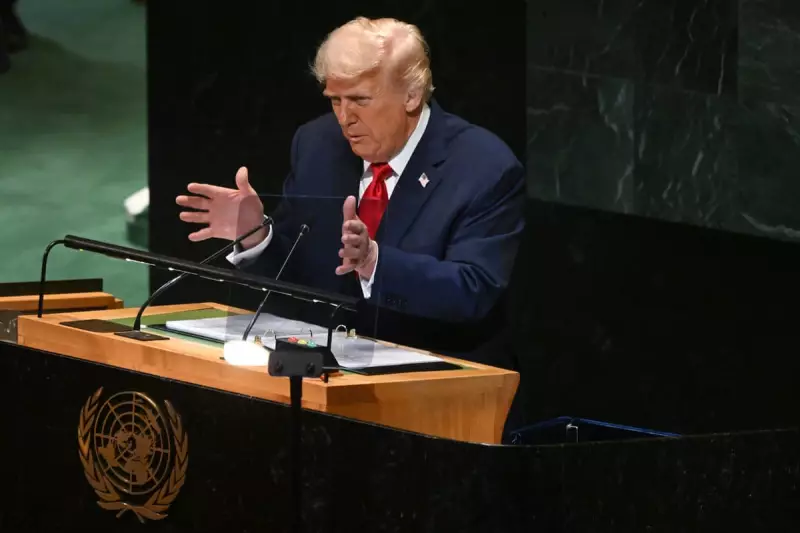
In a dramatic return to the world stage, former US President Donald Trump delivered a combative speech to the United Nations General Assembly that laid bare a starkly different vision for America's role in the world. The address, watched with a mixture of anticipation and apprehension, was a forceful reassertion of his 'America First' doctrine, directly challenging the multilateral order the UN represents.
A Doctrine of 'Peace Through Strength'
Central to Mr Trump's argument was the concept of achieving 'peace through strength.' He portrayed a world where nations must be self-reliant and prioritise their own interests above all else. This philosophy served as the foundation for his critique of global alliances and foreign aid, which he suggested could make recipient countries weak rather than strong.
Confrontation Over Cooperation
The speech was notable for its confrontational tone towards international bodies. The former president took direct aim at the United Nations itself, as well as other organisations like the World Health Organization (WHO), accusing them of being ineffective and not serving American interests. This stance marks a significant departure from the traditional US role as a champion of multilateralism.
Contrasting Leadership Styles
Analysts were quick to highlight the stark contrast between Trump's address and the approach of the current Biden administration. Where President Biden has sought to rebuild alliances and emphasise cooperation on global issues like climate change, Trump's speech underscored a deep scepticism of such endeavours, framing them as detrimental to US sovereignty and economic power.
Mixed Reactions and a Divided Audience
The reception within the General Assembly hall was decidedly mixed. While the speech resonated with certain factions, it was met with visible unease and criticism from many diplomats and world leaders. Critics argue that his vision promotes a dangerous isolationism at a time when global challenges—from climate crises to regional conflicts—require unprecedented international collaboration.
Ultimately, Trump's UN appearance was less a diplomatic overture and more a potent political statement. It served as a clear signal of his foreign policy priorities should he return to power, setting the stage for a fundamental debate about America's future engagement with the world.






